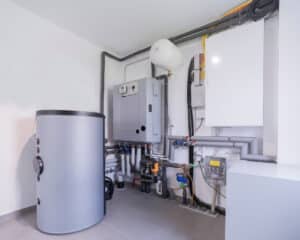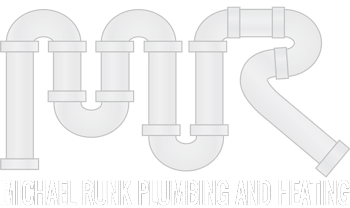Heat pump water heaters are a popular choice for homeowners looking to save energy and reduce their carbon footprint. These systems work by extracting heat from the air or ground and using it to heat water. While heat pump water heaters are an efficient and cost-effective option, many homeowners are unsure whether these systems need to be vented. Take a closer look at heat pump water heaters and the ventilation requirements for these systems.

How Heat Pump Water Heaters Work
Heat pump water heaters work by extracting heat from the air or ground and transferring it to the water in your home’s hot water tank. The system consists of a compressor, a heat exchanger, and a tank. The compressor circulates refrigerant through the heat exchanger, which absorbs heat from the surrounding air or ground. The heat is then transferred to the water in the tank, which is then circulated throughout the home.
Ventilation Requirements for Heat Pump Water Heaters
While heat pump water heaters do not produce exhaust gasses like traditional gas or propane water heaters, they do require ventilation. This is because heat pump water heaters generate heat by extracting it from the surrounding air or ground. The process of extracting heat produces moisture, which can build up in the area around the water heater if it is not properly vented.
Most heat pump water heaters require ventilation to the outside of the home, either through a dedicated vent or through the use of an existing HVAC system. The ventilation system should be designed to remove excess moisture from the area around the water heater, as well as to prevent the buildup of carbon monoxide and other harmful gasses. The exact ventilation requirements for your heat pump water heater will depend on the specific model you choose and the local building codes in your area. It is important to consult with a professional plumber to ensure that your heat pump water heater is properly installed and vented to meet the ventilation requirements in your area.
Benefits of Proper Ventilation
Proper ventilation is important for ensuring that your heat pump water heater operates safely and efficiently. Without proper ventilation, moisture can build up around the water heater, leading to the growth of mold and other harmful bacteria. Excess moisture can also cause damage to the surrounding walls and floors.
In addition to the health and safety benefits of proper ventilation, a well-vented heat pump water heater can also help you save money on your energy bills. By removing excess moisture from the area around the water heater, the ventilation system can help prevent the buildup of heat and humidity in your home. This can reduce the workload on your air conditioning system, resulting in lower energy bills and increased comfort inside your home.
Ensure Your Water Water Works Properly with Michael Runk Plumbing and Heating
Heat pump water heaters are an efficient and cost-effective option for homeowners looking to save energy and reduce their carbon footprint. Keeping these working properly and ventilated requires the help of a professional plumber, like Michael Runk Plumbing and Heating. We’ll ensure that your water heater is well-ventilated by installing it properly and adhering to the specific ventilation requirements for your heat pump water heater. Contact us now to get started.
